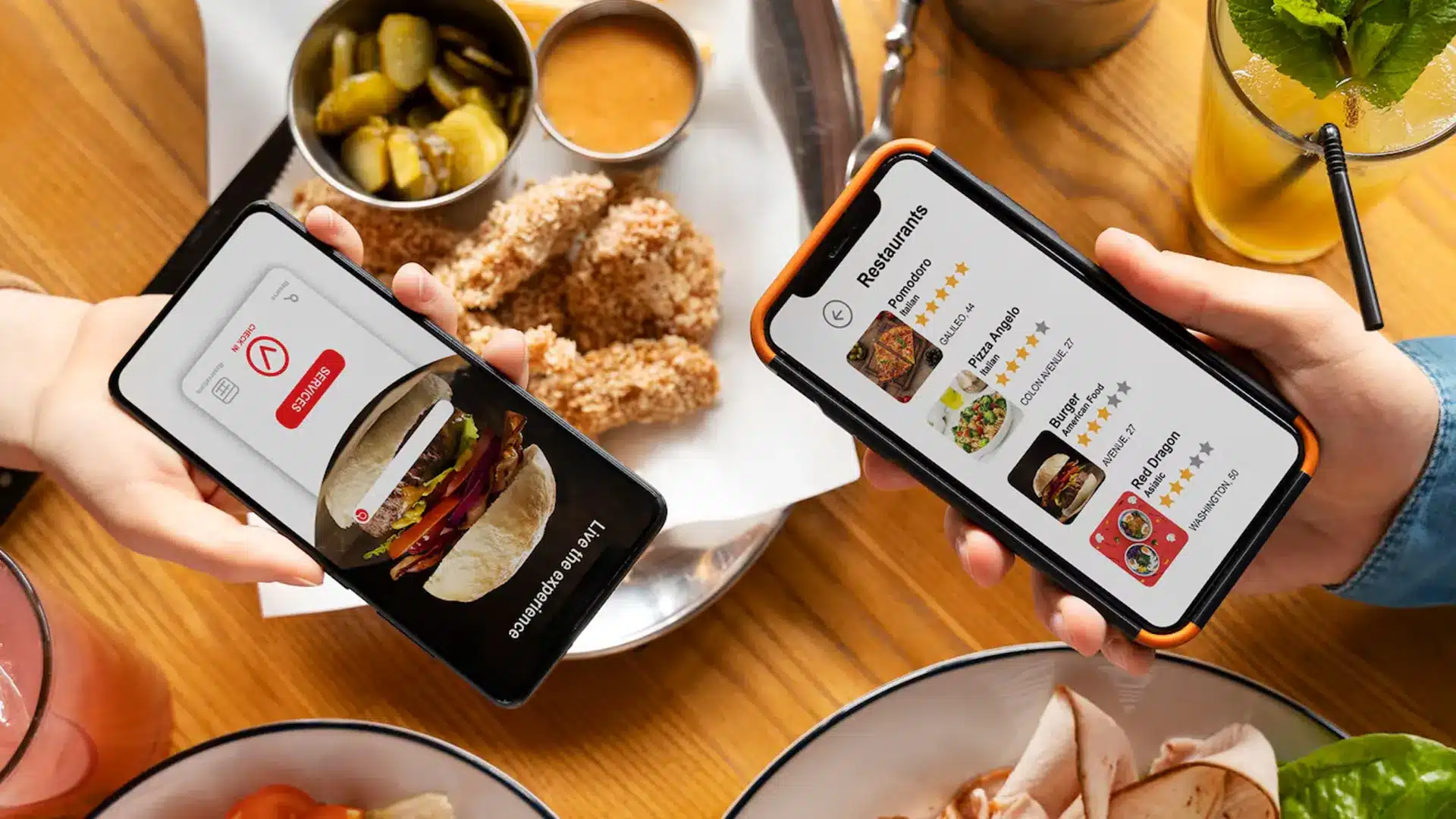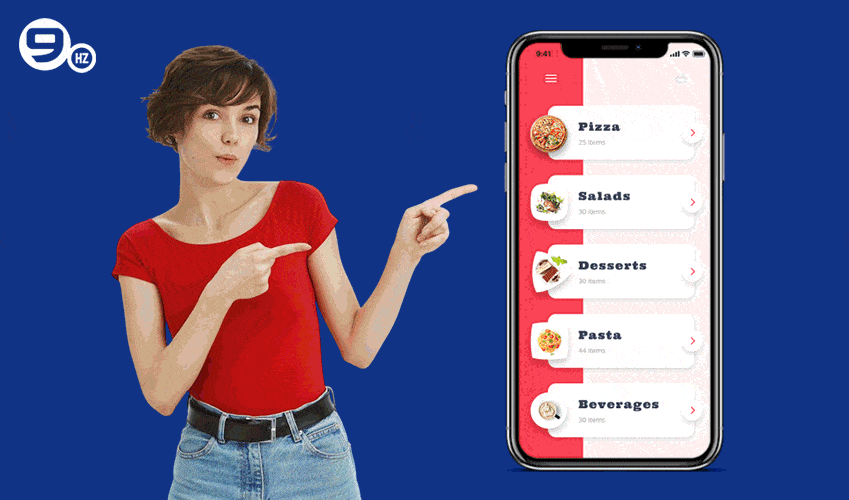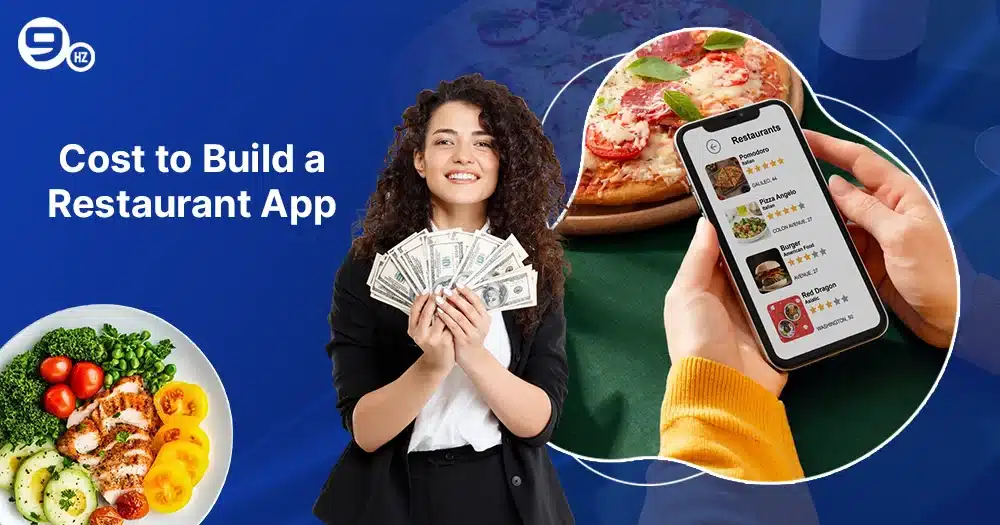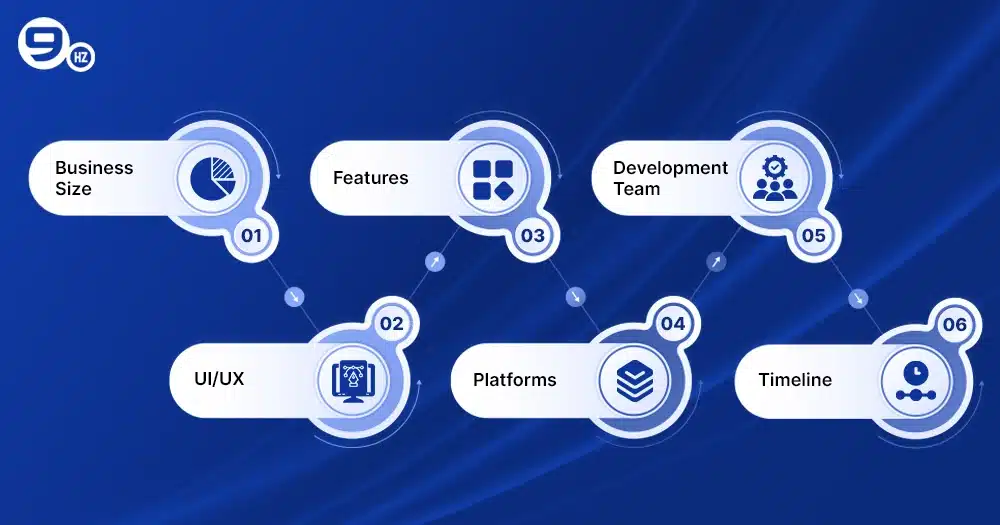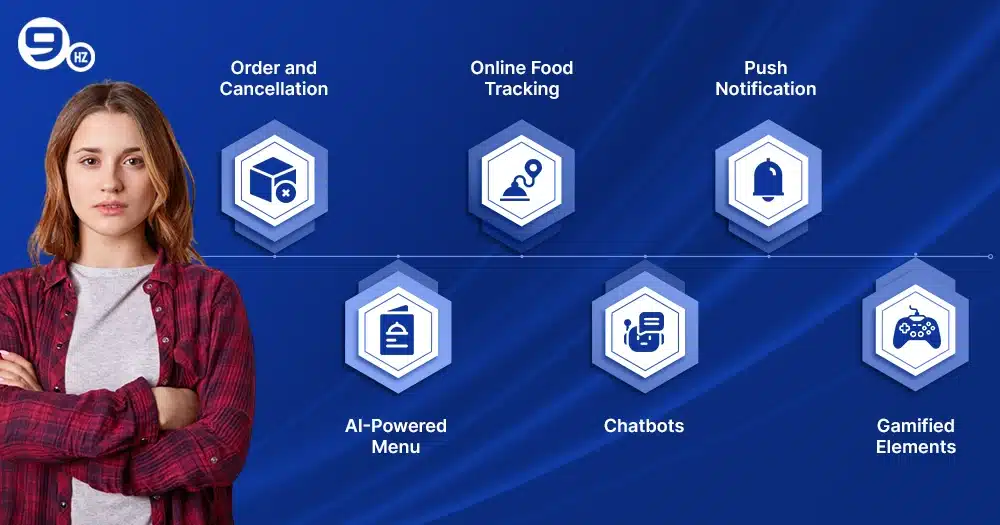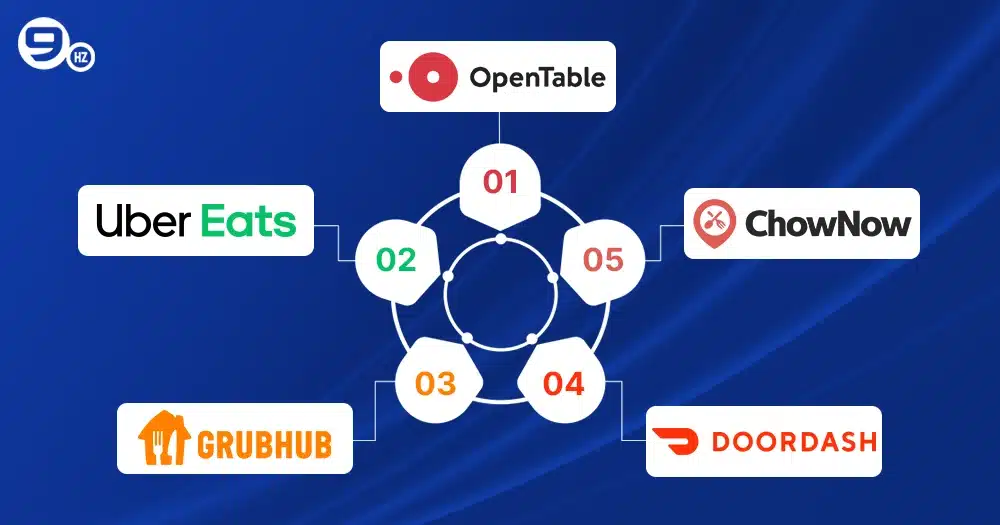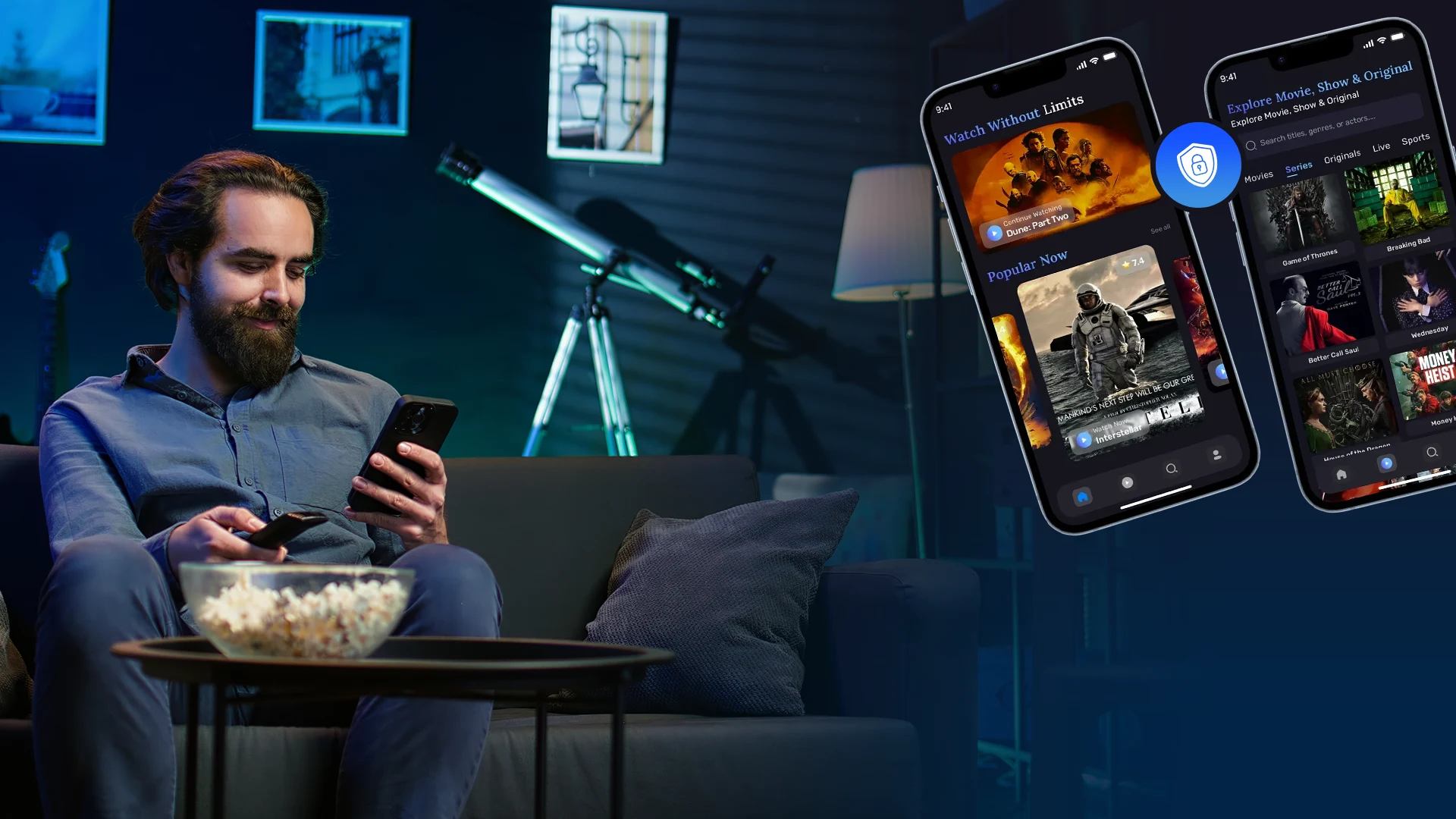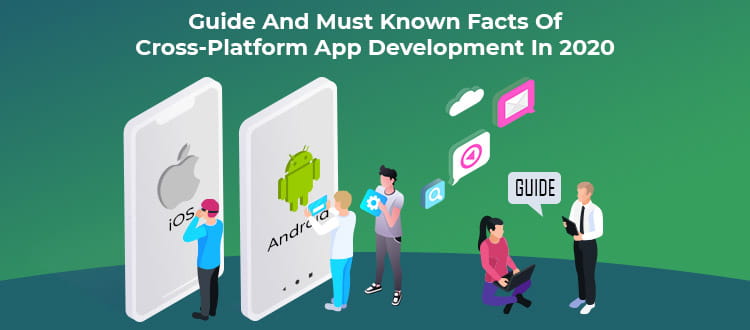Imagine craving your favourite food at 2 AM and being unable to visit the restaurant. What if you get a freshly served dish ready at your doorstep? Thanks to technology, this is possible by placing an order with the restaurant app. Simply swipe for your favorite dish and complete payment, and here you go!
With growing demand, more than 91% of restaurants are looking to invest in automation technology, and 67% of consumers prefer using a restaurant’s website or app for delivery. A study report published with new trends of cafe-styled, fast-food, and cloud kitchens. Considering that there will be a high demand for restaurant app development company to launch apps, many restaurants still want to capture the online market.
So, being a restaurant owner, you must be wondering how to create an app, what features to include, and what is the cost to develop a restaurant app? Let’s answer through a comprehensive blog with details on development by the National Restaurant Association of India (NRAI) shows more than 5,00,000 restaurants operating in India costs, integrated features, and strategies.
What is a Restaurant App?
A restaurant app is a web-based application that allows customers to directly interact to order food, browse menus, or reserve a table through a smartphone. It acts as an interface where customers can place orders for their favourite food with home comfort, and restaurant owners swiftly manage their operations online. We can have the best examples of Ubereats, Zomato, Swiggy, Dineout, etc.
For small-scale startups or big restaurants, developing a customized feature app can help them manage their operations, procurement, and employee schedules, as well as handle multiple orders at a time. Is it possible to integrate all features in one app or invest in creating multiple apps? Well, it depends on factors like business goals, budget, cost to build a restaurant app and user experiences.
Here are the categories of restaurant apps that owners can explore:
- Digital food ordering apps (Zomato or Swiggy)
- Reservation Apps (Resy or OpenTable)
- Point of Sale Apps (Toast POS or Square)
- Restaurant Management Apps (TouchBistro or Restaurant365)
- Loyalty and Reward Apps (Subway MyWay Rewards or Starbucks Rewards)
- Online Menu and Contactless delivery apps (Clover or MenuDrive)
- Restaurant Discovery Apps (Bikanervala or Domino’s Pizza)
- Cloud Kitchen Apps (UrbanPiper or Yellowsoft)
How Much Does It Cost to Build a Restaurant App?
Traditionally, building an app looks complex and technical; however, technological advancements in programming languages, cloud computing, and frameworks have simplified the development process. It significantly reduces restaurant app development costs with the cloud-based model, APIs, and no-code and low-code platforms.
Let’s make it simple for restaurant owners to understand how much it cost to develop a restaurant app using a comprehensive table:
| Component | Basic | Mid-Level | Advanced |
|---|---|---|---|
| User Registration & Profiles | $1000-$2000 | $3000-$5000 | $5000-$8000 |
| Menu Display | $1000-$2000 | $3000-$6000 | $7000-$12000 |
| Online Ordering System | $2000-$5000 | $6000-$12000 | $15000-$25000 |
| Table Reservation System | – | $4000-$8000 | $10000-$15000 |
| Payment Gateway Integration | $1000-$3000 | $5000-$10000 | $12000-$18000 |
| Loyalty & Rewards | – | $3000-$6000 | $8000-$12000 |
| Push Notifications | $1000-$2000 | $3000-$5000 | $6000-$10000 |
| Order Tracking System | – | $5000-$10000 | $12000-$20000 |
| Customer Reviews & Ratings | $1000-$3000 | $4000-$7000 | $8000-$12000 |
| Admin Dashboard | $2000-$5000 | $8000-$15000 | $20000-$30000 |
| Third-Party Integrations (POS, CRM, etc.) | – | $5000-$12000 | $15000-$25000 |
| Cloud Hosting & Security | $1000-$3000 | $5000-$10000 | $10000-$20000 |
| Total Estimated Cost | $5000-$25000 | $15,000-$75,000 | $100,000 & Beyond |
Estimated Cost to Build a Restaurant App like Zomato or Swiggy
If we name any two popular online food delivery businesses, Zomato and Swiggy. Restaurant owners aim to build the same model with advanced features such as smart recommendations, real-time order tracking, push notifications, etc. So, how much does it cost to develop a restaurant app like Zomato or Swiggy:
| Component | Estimated Cost ($) Range |
|---|---|
| User Registration & Profiles | $3000-$6000 |
| Restaurant Listings & Search | $5000-$10000 |
| Dynamic Menu with Images | $4000-$8000 |
| AI-based Recommendations | $8000-$15000 |
| Online Ordering System | $10000-$20000 |
| Real-Time Order Tracking (GPS) | $15000-$30000 |
| Payment Gateway Integration | $8000-$15000 |
| Table Reservation System | $8000-$12000 |
| Push Notifications & Alerts | $4000-$7000 |
| Loyalty & Rewards System | $6000-$12000 |
| Customer Reviews & Ratings | $5000-$10000 |
| Admin Dashboard & Analytics | $15000-$30000 |
| Third-Party API Integrations (Google Maps, Payment, CRM, POS, etc.) | $12000-$20000 |
| Cloud Hosting & Security | $8000-$15000 |
| Driver & Delivery Management System | $15000-$25000 |
| Total Estimated Cost | $120,000-$250,000 |
Estimated Post-Launch Cost for Restaurant App
Launching a restaurant app doesn’t mean the job is done! Here is the list of a variety of post-launch restaurant app development cost to share details on the updates, maintenance, hosting, and marketing:
| Component | Estimated Costs |
|---|---|
| Hosting & Server Costs | Per Month |
| Basic Cloud Hosting | $50 – $200 |
| Mid-Level Hosting | $200 – $500 |
| Enterprise-Level Hosting | $500 – $5,000 |
| App Maintenance & Updates | Per Year |
| Bug Fixes & Security Patches | $5000 – $15000 |
| New Feature Updates | $10000 – $50000 |
| OS & API Updates (iOS, Android) | $5000 – $20000 |
| Third-Party API Maintenance (Google Maps, Payment, etc.) | $2000 – $10000 |
| Marketing & Promotion | Per Month |
| Social Media & Digital Marketing | $1000 – $10000 |
| Google/Facebook Ads | $2000 – $20000 |
| SEO & Content Marketing | $500 – $5000 |
| Influencer & Brand Partnerships | $1000 – $10000 |
| Customer Support & Operations | Per Month |
| Basic Email Support (Small Team) | $1000 – $5000 |
| Live Chat & Phone Support (24/7 Support Team) | $5000 – $20000 |
| AI Chatbots & Automation | $2000 – $10000 |
| Payment Gateway | Per Transaction |
| Stripe, PayPal, Razorpay, etc. | 2.5% – 3.5% per transaction |
| Custom Payment Gateway (Enterprise Level) | Varies (Fixed + % per transaction) |
| Third-Party API & Integration Costs | Per Month |
| Google Maps API (Location & Tracking Services) | $200 – $2000 |
| CRM & POS System Integration | $500 – $5000 |
| AI & Machine Learning Services | $1000 – $10000 |
Factors Affecting the Restaurant App Development Cost
Do you think that every restaurant owner has the same expectations for app development? No, there might be variations for the budget estimation, feature selection, and compatibility. So, whenever you approach any restaurant app development company, they will consider each factor carefully to develop an ideal app with high usability and customized features.
1. Size of Restaurant Business
If your business is operating on a large scale, there will be more branches that require fully customized multi-platform apps for iOS or Android. On the other side, small businesses focus on dine-in options that create basic apps with limited features that require less investment. Developers can depend on cost-effective solutions like Minimum Viable Product (MVP) for optimal savings.
2. Prototype and Designing
Before forwarding with the development process, a proper wireframe would help to navigate app functionalities and test multiple versions. It helps developers to finalize how an app looks, and the design feels from the user’s perspective. Following the right UI/UX principles can improve your application’s structure layout with functions. So, a minimal design will cost less, while an advanced model can increase its value.
3. Features and Functionalities
Depending on the core idea of restaurant owners when developing a restaurant app, it is essential to question what core features to integrate with the app. If you prefer the basic version with limited feature,s it will cost you less, or advanced versions with real-time tracking or navigation require more additional cost.
4. Native or Hybrid Platforms
Next, the developers should consider accessibility and which platform the customer prefers to access the app. For optimal usage, owners might choose native apps to be optimized for specific platforms like Android or iOS. Otherwise, hybrid apps offer cross-platform compatibility to allow access through multiple devices. Comparatively, a native app is more costlier than a hybrid app development.
5. Development Team
Skilled and experienced developer teams can help build the most compatible app with integrated features. If you are developing a complex app, it requires a larger number of developers, which increases cost. In contrast, a simple restaurant app accounts for fewer developers or a small team that can bring the best results.
6. Timeline
Framing a timeline for development can streamline project management and deploy customized featured apps. Prolonged development time might increase development costs with phase implementation. However, the low-code platforms might develop faster but lack features and integration while trusting that skilled developers will deliver advanced-version apps.
Some other supporting factors affecting restaurant app development cost are payment gateway or third-party integration, security features, app maintenance, testing & QA, project management, app customization, and regulatory compliances. You can spend time on feature complexities to rely on the project management tools such as Trello, MindMeister, Jira, or ProductPlan for app development.
Must-Have Feature to Develop Restaurant App
Does it mean adding more features can only develop the best restaurant app? Not really; a food delivery app development company is bound to research for the right feature that suits business operations and is relevant to attract more customers. Here are the enlisted features for custom mobile app development:
1. Order and Cancellation
Placing can be simplified by scanning a QR code or selecting a few options on the restaurant app. Using the application, you can easily schedule contactless ordering and flexible payment options like mobile wallet, net banking, UPI, and other modes. What if you placed the wrong order? You can easily cancel your food order and place a refund.
2. AI-Powered Menu
Have you noticed user preference selection categories in an app like veg, non-veg, spicy, or sweet? Customized selection features result in customer satisfaction, while AI tech can analyze data for customer data history and dietary preferences. It can study real-time behavior and constantly keeps track of high-order values.
3. Online Food Tracking
Customers can’t just get their favorite food delivered online! This food-tracking feature can help to determine real-time progress for orders and updated locations for delivery personnel. It can decrease the waiting process and long queues and result in less tiresome. Users can get regular notifications for order status and share delivery partner details.
4. Chatbots
AI-driven chatbots can be integrated with websites and social media to help bring repeated business. Bots can initiate dialogue, interactive FAQs, and personalized conversations to gather basic details, offers, discounts, and follow-up messages. It reduces the hassle of explaining steps to customers as they can easily navigate features.
5. Push Notification
Restaurants expect users to stay engaged and use push notifications to send updates on offers, orders, and promotions. It connects with audiences to add new menus, enjoy early bookings, and look out for rewards and discount points. Push notifications can appear on the lock screen and flash as a banner on the top of the notification bar.
6. Gamified Elements
Featuring a restaurant app with a gamified concept can hit consumers’ psychology and make it more interactive. So, you can add animation to the UI/UX design by inserting virtual widgets, leaderboards, badges, and progress displays to drive more engagement.
Every restaurant owner aims for better customer experiences and usability so that other additional integrated features can streamline app usage. Some of the recommendations are real-time table reservations, loyalty & reward programs, integrated delivery and pickup options, customized preferences, push notifications, and multilingual support.
Top 5 Restaurants Apps in the USA
The US food and service industry is valued at $905 billion in 2023 and will be expected to reach $176 billion by 2030 with a CAGR of 10% for the forecast period. Due to changing consumer habits and fast lifestyle grow demand of ordering food from fast food chains and diners, such as McDonald’s, Taco Bell, Wendy’s, Burger King, Pizza Hut and Domino’s.
| App Name | Core Features | Description | Platforms Compatibility |
|---|---|---|---|
| OpenTable | Free reservations, dining credits, user reviews, and photos. | A widely-used app for discovering and reserving tables at restaurants. | iOS, Android |
| Uber Eats | Real-time order tracking, scheduled deliveries, and diverse restaurant options. | A popular food delivery app that connects users with a variety of local restaurants. | iOS, Android |
| Grubhub | Pre-ordering, contact-free delivery, and personalized restaurant recommendations. | A comprehensive food ordering app offering delivery and pickup from numerous eateries. | iOS, Android |
| DoorDash | Real-time tracking, group orders, and scheduled deliveries. | A leading food delivery service partnering with a vast network of restaurants. | iOS, Android |
| ChowNow | Customizable menus, direct ordering, and marketing support for restaurants. | An online ordering platform supporting local restaurants with commission-free services. | iOS, Android |
How Can The NineHertz Help You in Restaurant App Development?
NineHertz is a reliable and leading software development company that helps you build custom and on-demand apps. Whether you are looking to develop a restaurant searching platform, food delivery app, inventory management, or POS software, skilled developers can build solutions. With over 15+ years of experience, NineHertz can help to bring all features of personalized recommendations, predictive ordering, delivery routes, customer support chatbots, menu management, voice ordering, and others.
Get the ultimate AI-optimized solution for scaling your restaurant business with barcode scanning, recipe management, business reporting, inventory tracking, order management, and inventory status accuracy. NineHertz has crossed the impressive milestone of 800+ projects launched with a dedicated team of 500+ developers, resulting in 92% client retention. Have a quick chat and discussion with our experts on the cost of building a restaurant app!
Conclusion
Food ordering or restaurant apps have all the reasons to grow for customer satisfaction, monetization strategies, or hassle-free reservation management. More than 70% of customers prefer to get online food delivered as it simplifies their dining experiences and saves more time. While users can enjoy 24-hour delivery and geolocation services, restaurant owners allow for loyalty rewards, discounts, and special promotions for customer retention. Investing in food ordering apps can allow businesses to stay competitive in the online food delivery market and drive more sales volume.
Whether you are dealing with a fast food chain or cloud kitchen, do proper market research and get an estimate for the development timeline and cost to build an app to grow your online business!
Frequently Asked Questions (FAQ’s)
1. How much does it cost to develop a restaurant app?
Depending on the size and scale of your business, the average cost to develop the app can be between the range of $10,000 to $2,00,000.
2. Can we monetize the restaurant app?
Yes, here are a few ways to generate revenue, including subscriptions, product or goodies in-app purchases, affiliate programs, and sponsorships from brands.
3. What is the average time required to develop a restaurant app?
It will be an estimated 3 to 4 months on average to spend on research, designing, development, and testing, while for the advanced version, it might take beyond 6 months.
4. Is it profitable to invest in developing a restaurant app?
Assessing the growing demand for online food ordering, restaurants should consider developing apps to manage their operation, handle large volumes of orders, and share personalized user experiences for revenue generation.
5. Which software or tool is used to develop restaurant app development?
Some popular software are Firebase or Node.js, used for backend development and real-time monitoring; React Native or Flutter is utilized for cross-platform apps, and Swift and Kotlin for native apps.
Great Together!
